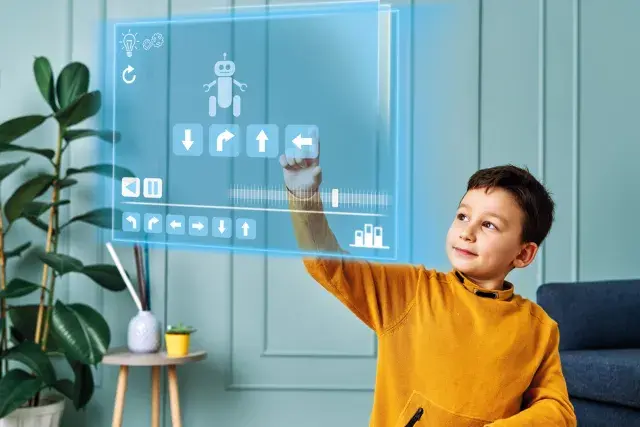The Impact of AI on Parenting: Preparing Kids for a Technologically Advanced Future
- Family Compassion

- Jul 11, 2024
- 2 min read
In today's rapidly evolving digital landscape, artificial intelligence (AI) is becoming an integral part of our daily lives. From virtual assistants to personalized learning tools, AI technologies are transforming the way we live, work, and learn. As parents, it’s essential to understand the impact of AI on our children’s futures and to equip them with the skills and knowledge they need to navigate this technologically advanced world. Here’s how you can prepare your kids for the age of AI.

Understanding AI and Its Applications
The first step in preparing your children for a future with AI is understanding what AI is and how it is used. AI refers to the simulation of human intelligence processes by machines, especially computer systems. These processes include learning, reasoning, and self-correction. Common applications of AI include speech recognition, natural language processing, and machine vision. By familiarizing yourself and your children with these concepts, you can demystify AI and make it more approachable.
Fostering Critical Thinking and Problem-Solving Skills
One of the most valuable skills you can impart to your children is critical thinking. In a world where AI can perform many tasks traditionally done by humans, the ability to think critically and solve complex problems will be crucial. Encourage your children to ask questions, analyze information, and consider multiple perspectives. Engaging them in puzzles, strategic games, and problem-solving activities can help develop these essential skills.
Encouraging Curiosity and Lifelong Learning
AI and technology are constantly evolving, making it vital for your children to become lifelong learners. Encourage their natural curiosity and support their interests in science, technology, engineering, and mathematics (STEM). Provide them with resources such as books, educational websites, and interactive toys that promote exploration and learning. By fostering a love of learning, you can help your children stay adaptable and open to new technologies and advancements.
Teaching Digital Literacy and Online Safety
As AI becomes more integrated into our daily lives, digital literacy is becoming increasingly important. Teach your children how to use digital tools and platforms responsibly and safely. Discuss the importance of protecting personal information, recognizing credible sources, and understanding the ethical implications of AI. Equip them with the knowledge to navigate the digital world securely and confidently.
Balancing Screen Time with Offline Activities
While technology and AI offer numerous benefits, it’s essential to maintain a healthy balance between screen time and offline activities. Encourage your children to engage in physical activities, outdoor play, and face-to-face interactions. Setting aside designated screen-free times can help them develop a well-rounded lifestyle and prevent overreliance on technology.
Modeling Responsible Technology Use
Children often learn by observing their parents. Model responsible technology use by being mindful of your screen time and demonstrating how to use AI tools effectively and ethically. Show your children the positive ways AI can enhance our lives, such as through educational apps, productivity tools, and health monitoring devices. By setting a good example, you can help your children develop a balanced and thoughtful approach to technology.
.png)


